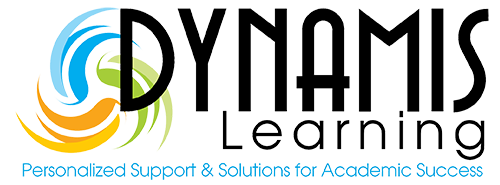 When we think of summer, we typically think of pools, water sports, lounging in the sun while sipping lemonade, family vacations, reunions, long walks on the beach, and all sorts of other pleasant activities. The not-so-pleasant thought we often don’t have pertains to the amount of learning our children lose during this 8-9 week summer period. For math skills, there is an approximate two month loss in computational skills. Losses in reading and spelling are also significant and can affect learning in a variety of other subjects on a long range basis.
When we think of summer, we typically think of pools, water sports, lounging in the sun while sipping lemonade, family vacations, reunions, long walks on the beach, and all sorts of other pleasant activities. The not-so-pleasant thought we often don’t have pertains to the amount of learning our children lose during this 8-9 week summer period. For math skills, there is an approximate two month loss in computational skills. Losses in reading and spelling are also significant and can affect learning in a variety of other subjects on a long range basis.
Summer learning loss is not a new thing, nor is it a temporary phenomenon. Many people assume that students can make up their summer losses during the upcoming school year. This is simply not true!
Additionally, it is a fact that summer learning loss, when experienced on a continual basis, can affect students’ scores all the way through high school. As the debate rages on as to whether we should change to a year round school session, the facts are that children lose a portion of their skills by going so long without instruction. For lower income families, the statistics can be staggering. As parents and teachers, we might feel helpless, but please know that we CAN do something to help abate this damage.
The number one easiest thing we can do is to have our children read. Reading stimulates the brain cognitively and expands the vocabulary. Reading is also free. You just need to take a ride to your local library and check out some books. Often times, the trip to the library itself is an enjoyable way to add a weekly, out-of-the-house routine to your summer. For purposes of this blog, I’m going to focus on some great books to add to your summer reading list for children in grades K-2. Reading summer list, grades k-2.
If you’ve already clicked on the link above, you will see a  plethora of age appropriate books from which to choose. Depending on your child’s reading level and abilities, you might be the best person to set a goal pertaining to the number of books your child will read. Take into account their frustration level with reading, their subject matter likes and dislikes and any amount of time you will be on vacation, etc. Be sure to include both fiction and non-fiction books to your list.
plethora of age appropriate books from which to choose. Depending on your child’s reading level and abilities, you might be the best person to set a goal pertaining to the number of books your child will read. Take into account their frustration level with reading, their subject matter likes and dislikes and any amount of time you will be on vacation, etc. Be sure to include both fiction and non-fiction books to your list.
The second thing you can do this summer is to consider tutoring your child in reading. If he/she is already struggling in this area, and the thought of trying to monitor them yourself is too much, now is the perfect time to get them enrolled in a small group or individual tutoring session. We have all heard of or enrolled our kids in some form of summer camp or weekly activity, so why don’t we think of doing something that will benefit them academically in the future? Of course, we want them to be active, true.
However, the best of all worlds is to engage your child both physically and mentally. Tutoring is an excellent option for enhancing your child’s mental capabilities. It’s generally only for an hour or so once or twice a week. Kids can easily do both tutoring and summer camp. Kids book clubs are also a great option because it allows for some collaboration work, social time and brain development all in one!!
If you would like to keep your child active mentally, I invite you to contact Dynamis Learning Academy and inquire about some of the summer programs and kids book clubs beginning in just a few short weeks (early June). Dynamis employs highly qualified teachers with years of experience in a variety of academic disciplines, from reading to math and in between. You might be pleasantly surprised when summer ends and your child finds themselves excited and uniquely equipped to embrace a new school year.
